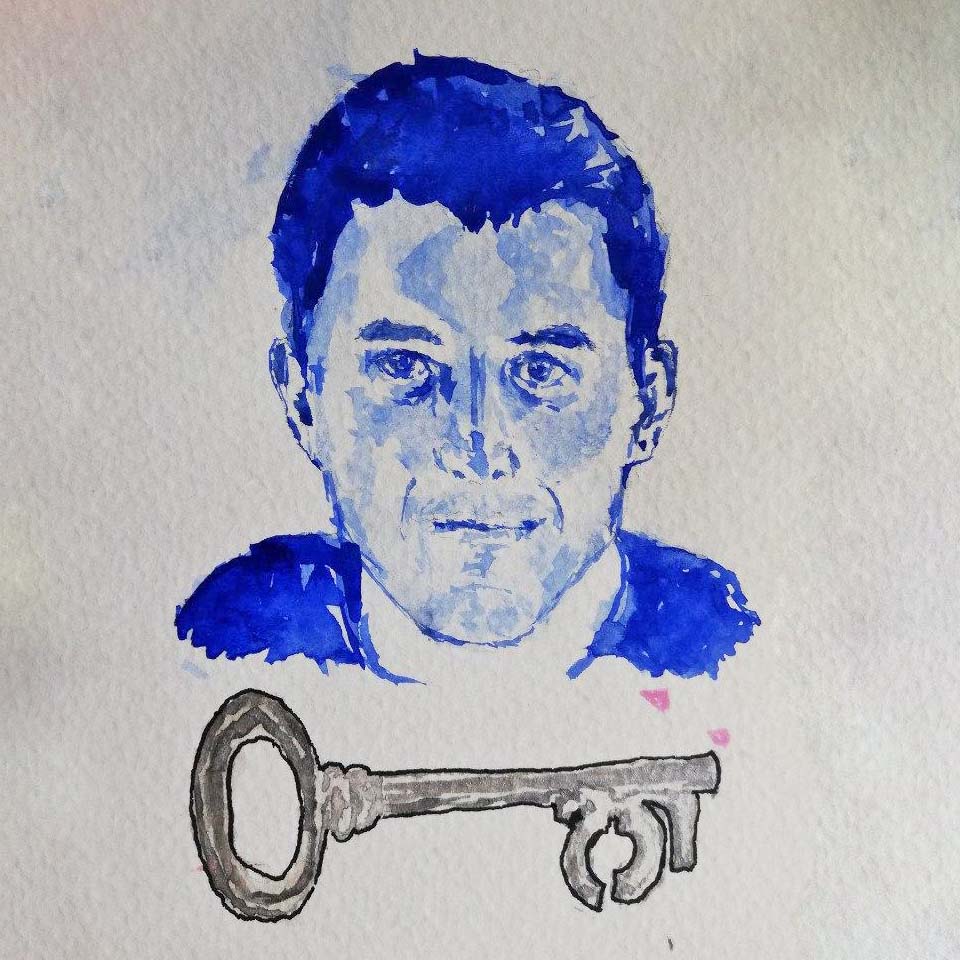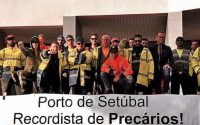Basque Country // Hunger and thirst strike for the rights of prisoners~ 5 min

By Valdemar Gomes and Uxue Corpas
Amnistiaren Aldeko eta Errepresioaren Aurkako Mugimendua (The Pro Amnesty and Against Repression Movement) reported that the Basque political prisoner Patxi Ruiz started a hunger and thirst strike last Monday, May 11, because of threats and persecution against him by the prison guards and the prison chiefs of the module 8 of Murcia Prison II.
Before enacting the State of Exception in the Spanish State (March 14), authorities had already begun to suspend the political and social rights of prisoners with the prohibition of any visit to the prisoners (March 12). The French State only took another five days to implement the same measure.
In addition to the ban on visits, they reduced prisoner communications with family members and lawyers, thereby further isolating them. In addition to the cancellation of recreational activities or physical exercise, there is also a lack of means of protection against Covid-19 and the risk of contagion by the prison guards, which worsens the already poor conditions in the prisons.
In view of the measures taken by the Spanish State, the prisoners in module 8 of Murcia II Prison began to protest. In the same way that they denounced the conditions in the prisons, they demanded the release of sick prisoners and of those whose sentence is almost served; the right to receive visits; the guarantee of means to avoid contagion; tests to detect Covid-19 in prisoners and prison guards, and in the event of the death of a family member, the right to attend at the cemetery or the morgue.
The protests took place without major clashes until May 9. From then on, the prison guards and the head of the module began to threaten Patxi, incriminating him of being at the head of the protests. On the same day, he cut his own arms in protest, and after not receiving the doctor’s medical attention, he even had to endure insults by the doctor: “take this piece of shit out of here”. The doctor also refused giving him a milder painkiller and said he didn’t care what might happen to him.
It is important to remember that this is not the first time that Patxi has made political protests inside the prison. In December, he cut his own arm to denounce the violent attitude of a prison guard against Basque political prisoners and Arab prisoners.
In this context, the political prisoner Patxi, in addition to asking for judicial protection, started a hunger and thirst strike on May 11. It is important to clarify that in a thirst and hunger strike, the organs begin to fail in only a few days. Day after day, more people join his struggle, inside and outside of the prisons.
In prison, the Basque political prisoner Ibai Aguinaga has been self-isolating in his cell since May 12. On the same day, political prisoners Dani Pastor, Oskar Barreras and Aitor Cotano rejected their tray of food. On May 14, Jon Kepa Preciado and Mikel San Sebastián joined the same protest, even if the latter has been on hunger strike since May 16, with his fast scheduled to end on the 18th. The political prisoners Oier Andueza and Mikel Izpurua also rejected food trays in Murcia II, alongside political prisoners Itziar Moreno and Saioa Sánchez from Rennes (on the 17th).
Outside of the prisons, in Biscay there are more than 20 people fasting in solidarity with Patxi. Four members of AAEAM (Pro Amnesty and Against Repression Movement) started the hunger strike on May 12, with one having to abandon it for health reasons. Still, two more people joined them this weekend. In addition to the four young people from Ondarru (Biscay) that also started fasting, they were joined by eight more people on May 15, and in Bilbao several young people began to fast this weekend. Of these young people, six completed the 48-hour fast.
Demonstrations and gestures of solidarity are spreading to the four corners of the Basque Country as well. However, police forces have already identified at least seven people; five at a demonstration in Legutio (Araba) and two in Donostia (Gipuzkoa), when they were putting up a banner. Not only that, with the denial of political freedoms under the State of Alarm and with the excuse of not respecting sanitary measures, a demonstration in solidarity with Patxi in the neighborhood where he grew up, Txantrea (Nafarroa), was forbidden this Sunday.
In the same vein, all political parties in Euskal Herria, in the eve of possible elections in July, came out against writings on the walls denouncing Patxi’s situation.
AAEAM reported that on Friday (May 15), in the last hour of the fifth day, and on the morning of the following day, Patxi received medical assistance. However, his doctors of trust were unable to contact him.
In addition, two companions of Patxi went to his prison, 735km away from Txantrea (Nafarroa), to visit him. In the morning they tried to visit him and, after being rejected, they were allowed to be with Patxi in the afternoon. Upon leaving the prison, the Guardia Civil (National Guard) informed them that they were going to be fined for breaking the confinement.
Patxi, who is in a grave state of health, confirmed to them that he will continue the struggle, if necessary, until the end. Today (May 18th) is his eighth day.
Internationalist organizations have signed a manifest in solidarity of Patxi’s reivindications.




